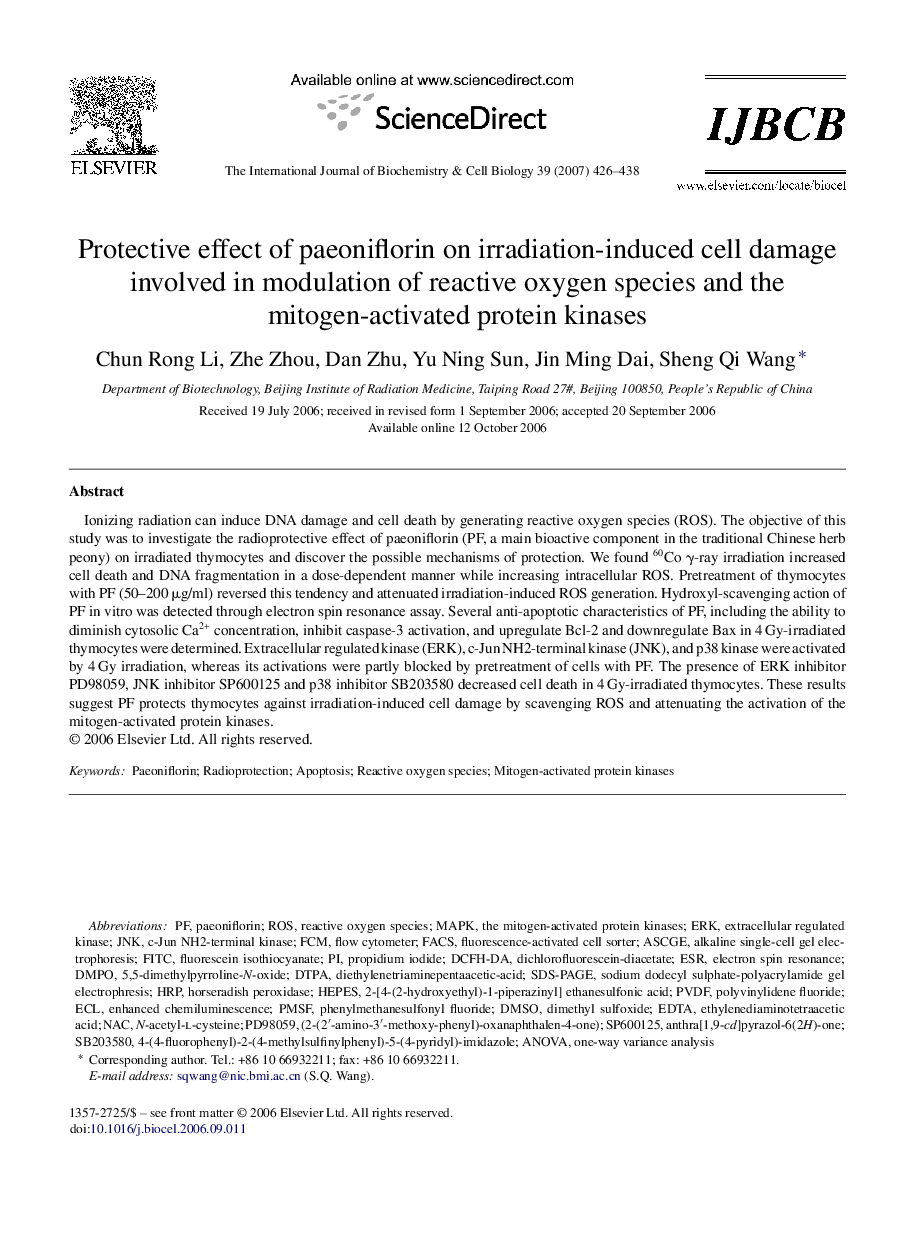| Article ID | Journal | Published Year | Pages | File Type |
|---|---|---|---|---|
| 1984581 | The International Journal of Biochemistry & Cell Biology | 2007 | 13 Pages |
Ionizing radiation can induce DNA damage and cell death by generating reactive oxygen species (ROS). The objective of this study was to investigate the radioprotective effect of paeoniflorin (PF, a main bioactive component in the traditional Chinese herb peony) on irradiated thymocytes and discover the possible mechanisms of protection. We found 60Co γ-ray irradiation increased cell death and DNA fragmentation in a dose-dependent manner while increasing intracellular ROS. Pretreatment of thymocytes with PF (50–200 μg/ml) reversed this tendency and attenuated irradiation-induced ROS generation. Hydroxyl-scavenging action of PF in vitro was detected through electron spin resonance assay. Several anti-apoptotic characteristics of PF, including the ability to diminish cytosolic Ca2+ concentration, inhibit caspase-3 activation, and upregulate Bcl-2 and downregulate Bax in 4 Gy-irradiated thymocytes were determined. Extracellular regulated kinase (ERK), c-Jun NH2-terminal kinase (JNK), and p38 kinase were activated by 4 Gy irradiation, whereas its activations were partly blocked by pretreatment of cells with PF. The presence of ERK inhibitor PD98059, JNK inhibitor SP600125 and p38 inhibitor SB203580 decreased cell death in 4 Gy-irradiated thymocytes. These results suggest PF protects thymocytes against irradiation-induced cell damage by scavenging ROS and attenuating the activation of the mitogen-activated protein kinases.
